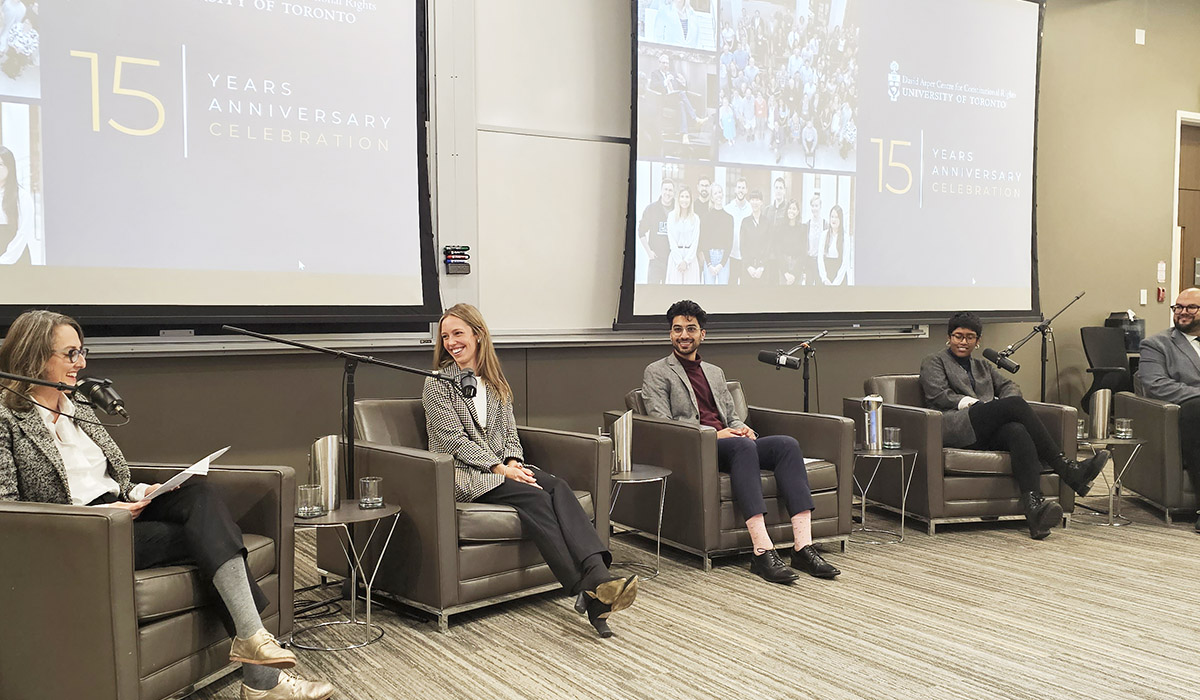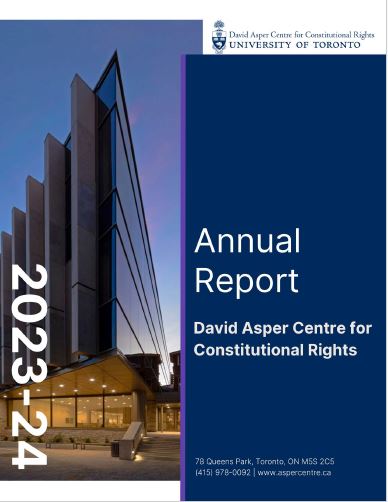On January 15, 2024, the Asper Centre will be intervening in the case of Mathur et al v His Majesty the King in Right of Ontario at the Ontario Court of Appeal, generously represented by our counsel and recent Constitutional Litigator in Residence Ewa Krajewska of Henein Hutchison Robitaille LLP.
This case, which commenced in 2019, involves a Charter challenge to the Ontario government’s legislative response to climate change, more specifically its adoption of weaker greenhouse gas emissions reduction targets with the passing of the Cap and Trade Cancellation Act, 2018, S.O. 2018, c. 13. It is the first Charter challenge in Ontario against government actions taken related to climate change to reach a full hearing on its merits.
The Appellants are a group of 7 youth climate justice activists and their guardians, who assert that the dangers and existential risks posed by climate change violate the Section 7 and 15 Charter rights of Ontario youth and future generations.
Although the court at first instance found that the issues in the application were justiciable, it decided that the appellants had not established any violation of Charter sections 7 or 15.
The Asper Centre is intervening on two issues in this appeal: the proper interpretation and application of the causation requirement in s. 15(1) of the Charter, and how the remedies available under s. 24(1) of the Charter can meaningfully vindicate the rights and freedoms of vulnerable claimant groups.
You can read our factum at the ONCA appeal here. The Asper Centre previously intervened in this case at the Ontario Superior Court of Justice. You can find our factum in that court here.


